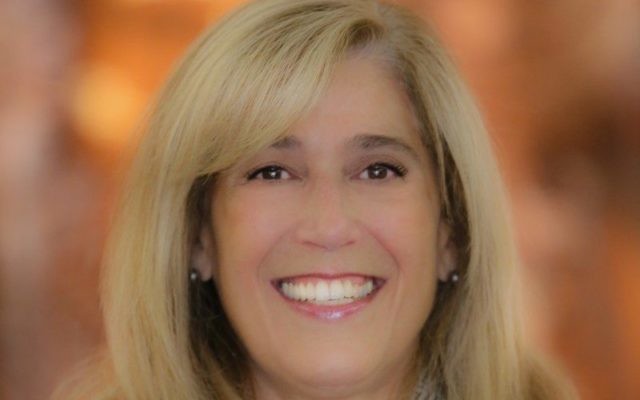United Synagogue: To Turn Our Hearts
Guest Column by Margo Dix Gold
As the new year approaches, our thoughts are drawn to the imperatives of tefillah, teshuvah and tzedakah.
My rabbi would be pleased that a sermon has always stuck with me. He explained that although teshuvah is understood as repentance, it really means “to turn.” We are to turn our hearts, examine our actions, look at how we have treated others and seek forgiveness from those whom we may have hurt.
What a moving image it is of turning one’s heart. Is this the moment we recognize an individual responsibility to advance a pluralistic society that values and respects differences among people and seek forgiveness for ways in which we hinder it?
In a year marked by public vitriol from leaders who deride the values of other people, foment divisiveness and give license to public expressions of hatred, have we lost the ability for civil discourse and shattered the notion of dignity and respect for those different from ourselves?
A sense of obligation for the other in our communities and the recognition of religious tradition as a means of its expression were reported by the 2013 Pew Report to be characteristics common to Conservative Jews.
As a network of nearly 600 North American congregations, the United Synagogue of Conservative Judaism and its leadership are committed to fostering pluralism. I am proud of the many ways that value is demonstrated globally, communally and individually.
In Israel, the Conservative/Masorti movement has activity pursued religious pluralism. Rabbi Steven Wernick, the USCJ CEO, and Rabbi Julie Schonfeld, the executive vice president of the Rabbinical Assembly, represented North American Conservative Jewry in negotiations with Prime Minister Benjamin Netanyahu on behalf of an egalitarian prayer space at the Kotel. USCJ, the RA and our partners continue to advocate for implementation of this fully negotiated and signed agreement.
The goal is a dignified worship setting accessible to all, including people with disabilities, and open to egalitarian prayer and to monthly women-only Rosh Chodesh observance by Women of the Wall. In the words of Isaiah (56:7), “My house will be called a house of prayer for all people.”
At the communal level, every synagogue seeks to be a place of welcome. But what does welcome feel like for people with disabilities, for the LGBTQ community, for the elderly, for family members of other faith traditions? USCJ’s award-winning inclusion programs are helping congregations transform attitudes and embrace actions that recognize the dignity and sacredness of each member of the community.
I was pleased to learn recently that in Canada, several Conservative kehillot are preparing to help resettle Syrian refugee families coming to their communities. And that Zionism and Israel continue to be dominant foci in Canadian congregations, unfettered by the politically charged acrimony and uncivil discourse that confound some American congregations.
A story from a teen participant in this summer’s USCJ United Synagogue Youth Poland-Israel Summer Pilgrimage shows how an unexpected encounter in Jerusalem can foster a moment of indelible understanding.
Jack’s group had gathered in Yemin Moshe for Kabbalat Shabbat and discovered the park there filled with Muslim Arabs celebrating the end of Ramadan. All around were musicians, children playing games and families enjoying picnics.
Undeterred, the teens gathered in a circle and started their service. When they reached Lecha Dodi and prepared to welcome the Sabbath bride, they realized that the musicians around them were playing percussion in time to the rhythm of the Shabbat melody. And that’s how they concluded the prayer: a group of American teens welcoming Shabbat in Jerusalem to the accompaniment of Muslim musicians.
That serendipitous connection of cultures and people forged an image of coexistence and its possibilities that this young man will carry with him for a lifetime.
In 5777, may we turn our hearts, learn to appreciate the value and gifts of a diverse society, and recognize the power we each hold to make a difference by our actions, by our attitudes and through our words.
On behalf of my husband, Larry, and all our family, I extend heartfelt wishes for a peaceful new year.
Ahavath Achim Synagogue member Margo Dix Gold is the international president of the United Synagogue of Conservative Judaism.





comments